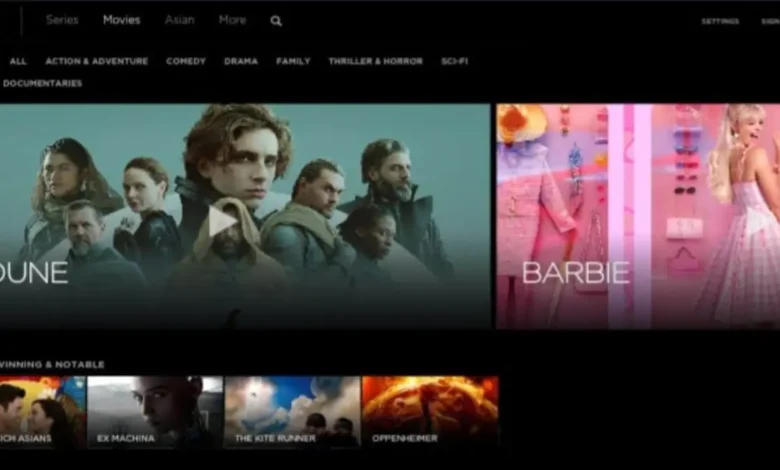Rebahin: Understanding the Platform and Its Impact

What is Rebahin?
Rebahin has gained attention as an online platform that provides access to a vast collection of movies and TV shows. Many users turn to this platform for entertainment, seeking a convenient way to watch their favorite content without the usual restrictions of mainstream streaming services. The platform has grown in popularity due to its user-friendly interface and extensive catalog, catering to diverse audiences.
The rise of Rebahin reflects a growing trend where viewers prefer flexible streaming options over traditional cable subscriptions. With high-speed internet becoming more accessible, on-demand content has reshaped the way audiences consume entertainment. Rebahin, in particular, appeals to those who want a seamless viewing experience without geographical limitations or excessive costs.
The Popularity of Rebahin
One of the reasons Rebahin has gained traction is the convenience it offers. Users can browse through a massive selection of movies and TV series without the hassle of multiple subscriptions. For many, this accessibility makes it an attractive alternative to paid services, especially in regions where streaming options are limited or expensive.
Another factor behind its widespread use is the ever-expanding demand for online entertainment. People are constantly looking for ways to stay updated with the latest releases, and Rebahin provides a platform that caters to this demand. Whether it is blockbuster films or lesser-known indie projects, the availability of diverse content contributes to its appeal.
The Legality and Ethical Concerns Surrounding Rebahin
Despite its popularity, Rebahin operates in a gray area when it comes to legality. Many streaming platforms require licensing agreements to distribute content, ensuring that creators and production companies receive fair compensation for their work. When a platform bypasses these regulations, it raises concerns about copyright infringement and the ethical implications of unauthorized distribution.
The impact on the film and television industry cannot be ignored. When movies and TV shows are made available without proper licensing, the revenue that funds future productions is affected. This creates challenges for filmmakers, actors, and studios that rely on legitimate streaming platforms for fair earnings. As a result, users need to be aware of the broader consequences of supporting such platforms.
The User Experience on Rebahin

Rebahin provides an intuitive experience that appeals to users who want hassle-free streaming. The website is designed to be accessible, allowing viewers to search for their preferred titles quickly. Many users appreciate the straightforward interface, which makes navigation smooth and efficient.
However, with free streaming services, there are often trade-offs. Some users report issues with video quality, buffering delays, and pop-up advertisements. Unlike premium platforms that invest in infrastructure to enhance streaming performance, Rebahin may not always provide the best technical experience. Users must weigh these factors when deciding whether to rely on such a platform for their entertainment needs.
The Role of Rebahin in the Streaming Industry
The rise of Rebahin highlights a shift in consumer behavior, where audiences prioritize accessibility and affordability. Streaming giants have taken notice of this trend, leading to increased competition and changes in pricing models. Some platforms have responded by offering ad-supported free tiers, ensuring they can retain viewership while still generating revenue.
The demand for alternative streaming options indicates that traditional models may need to evolve. Subscription fatigue is a real issue, with many users reluctant to pay for multiple services. This has led to discussions about the need for more flexible, consumer-friendly streaming solutions that cater to different viewing preferences.
The Future of Rebahin and Similar Platforms
Looking ahead, platforms like Rebahin face an uncertain future. With increased scrutiny from legal authorities, there is always a risk of shutdowns or restrictions. Many similar services have faced takedowns in the past due to copyright violations, and regulatory efforts continue to evolve to address these concerns.
At the same time, legitimate streaming platforms are finding ways to adapt. As technology advances, more innovative solutions may emerge that bridge the gap between affordability and legal content distribution. Users may see a future where entertainment is more accessible without compromising the rights of content creators.
Conclusion
Rebahin has become a significant player in the streaming landscape, attracting users with its vast content library and ease of access. However, its operation raises questions about legality, ethics, and the impact on the entertainment industry. While it provides an alternative for those seeking free streaming, it is essential for viewers to consider the broader implications of their choices.
As the streaming industry continues to evolve, new models may emerge that balance consumer needs with fair compensation for creators. Whether Rebahin remains a long-term fixture or fades away due to legal challenges, it has undoubtedly sparked conversations about how people access and consume digital entertainment. The future of streaming will likely be shaped by a combination of innovation, regulation, and shifting audience expectations.